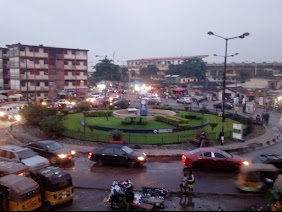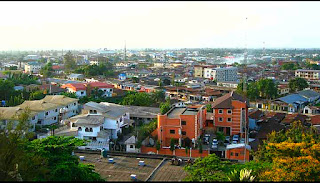Abeokuta-North: complete guide
💡Table of Content
- Introduction
- Electricity
- Security
- Road and drainage system
- Weather population density and noise
- Access to water
- Cost of living
- Jobs
- Education
- Healthcare
introduction
The Abeokuta-North local government is located in the southwest part of Ogun state, Created in 1989 by the military administration and became operational on 1 January 1990. The population of the area is about 338,100 people. It is bordered by Abeokuta South, Ijebu North, Ijebu East, and Ijebu West local governments to the north; it shares boundaries with Lagos State to the east and south; it also borders with Ogun Waterside local government to its west, Due to its location, this area has access to three major ports: Tin Can Island Port, Apapa Port, and Lagos Mainland Port. Let's take a look at some of the critical issues facing the Abeokuta-north local government
Electricity
Just like anywhere in Nigeria, The Abeokuta-North local government has been experiencing a power problem for quite some time now. The problem is that the electricity supply is not steady and there are regular power outages. This has led to a lot of complaints from the residents in the area and they are looking for solutions to this problem.
Security
The security situation in the Abeokuta-North local government is not the best in the world. The major security challenges include armed robbery, kidnapping, and cultism, also high crime rate in other parts of Nigeria has led to the influx of refugees into the local government
Road and drainage system
The roads and drainage in this local government are well taken care of. Many roads in this area make it easy to get around as well as many drainage systems that keep water away from houses.
weather and population density and noise
The weather in Abeokuta-North is a tropical wet and dry climate. The temperature ranges from 16°C to 30°C with high humidity. The rainy season starts at the end of March and lasts until July, also the town is located on a plateau, which makes it susceptible to earthquakes and landslides because of its elevation. The town is very densely populated and this leads to high noise levels as well as high air pollution levels due to overcrowding and traffic congestion.
access to water
There is a huge water problem in Abeokuta-North. The water crisis has been a major issue for the past few years and it is affecting people’s daily lives, the local government has tried to fix the problem but they have not been successful. The population of the area has increased and they don't have the necessary resources to provide clean water to everyone. There are many causes of this issue, but one of them is that there are no pipes in some areas so people rely on rainwater which can be contaminated
cost of living
The cost of living in Abeokuta-North is relatively low compared to other areas in Nigeria. The major industries are agriculture, education, and manufacturing.
The cost of living index for Abeokuta-North ranges from 50% to 80%.
jobs
The unemployment rate in Abeokuta-North Local Government is about 18%. This means that more than one out of five adults are not working or looking for work. The unemployment rate is much higher among women than men (22% vs 16%).
Education
The school situation in Abeokuta-North Local Government is a major concern. The population of the area is about 338,000 people and there are only 12 public schools with an enrolment of 25,000 students. This means that an average of 2,000 children are enrolled in each school. The literacy rate is low, with an adult literacy rate of 54% and a youth literacy rate of 34%. The primary school enrollment rates are also low with only 61% enrollment for boys and 57% for girls.
healthcare
The hospital situation in Abeokuta-North local government is not as good as it should be. It has been on the decline for a while now and this is a major problem for the well-being of the people living there. The hospital staff is not well-trained and they are overworked, which leads to many mistakes that have bad consequences for their patients. There are also not enough beds in the hospital and this makes it hard for patients to get treated when they need it most











Comments
Post a Comment